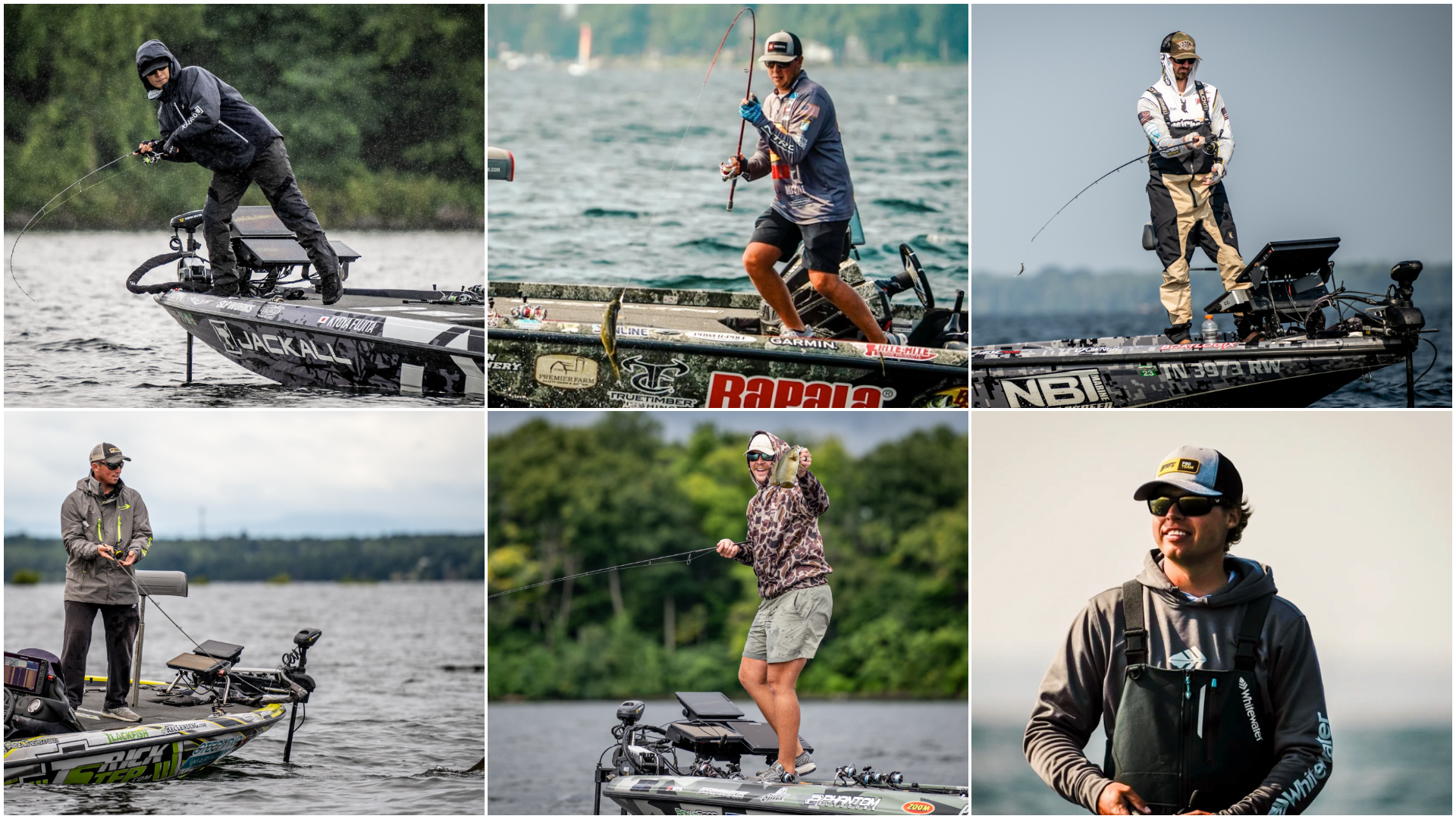
PLATTSBURG, N.Y. — One tournament doesn’t make a trend. However, it’s hard not to notice the youth movement that advanced to Monday’s Championship in the Dakota Lithium Bassmaster Elite at Lake Champlain.
Seventh-place Austin Felix, at the ripe old age of 39, is the senior member of the Top 10. Alex Redwine, who won’t turn 24 until next week, is the youngest. Only four of the 10 have hit their 30s – Felix, Matt Robertson (37), Justin Atkins (33) and Bryant Smith (32). First-place Kyoya Fujita, an Elite Series rookie, is 27. Second-place Cody Huff, 26, was a rookie last year. Fifth-place Jay Przekurat, 24, was the Elite Series Rookie of the Year last year.
“That’s a totally different dynamic in the sport that I grew up reading about and that I participated in,” said Davy Hite, 58, a Bass Fishing Hall of Fame member, 1999 Bassmaster Classic champion and two-time B.A.S.S. Angler of the Year (1997, 2002).
Hite noted that he carefully studied the details of what made a successful B.A.S.S. tournament angler before he made the decision to jump into competition at age 27.
“One of the things I saw was the average age of the most successful anglers at that time was 35 to 45,” Hite said. “It was certainly not in the 20s. The unfortunate thing about our sport at that time was to get enough experience to be what I’d call good – to make daily changes and hourly changes on the water – time on the water was absolutely necessary for many, many, many years.”
Again, one tournament doesn’t establish a trend. Maybe this week on Lake Champlain, where forward-facing sonar was essential and rough water was constant, created an emphasis on youth. But high school and college fishing, plus the shortening of a learning curve through various media have also played a role in young anglers having early success.
“I feel like a lot of us young guys have kind of grown up with the electronics and used them through all stages,” said Jacob Foutz, 25, who is in 10th place after three days at Champlain. “I feel like a lot of the young guys embrace it and enjoy it. And I think a lot of people don’t enjoy it, which is wild to me.
“It has always helped me catch so many more bass. I’ve learned so much more about bass fishing with it. I definitely think there’s an advantage for the younger guys just because we understand it a little more. We’re more in tune with the technology.”
Patrick Walters will celebrate his 29th birthday on August 30th. He’s already won four B.A.S.S. events, finished in the top five in Angler of the Year points the past three years and earned over $800,000 in B.A.S.S. events. His success started on the bass fishing team at the University of South Carolina.
Walters thinks a smallmouth bass tournament, where forward-facing sonar is key, and long days on rough water put an emphasis on youth.
“I think it has to do with focus,” said Walters, who is 8th going into Monday’s final. “When you’re catching them in a (forward-facing sonar) tournament like this, you’ve got to stand up all day long. I still haven’t put a butt seat in my boat after three smallmouth tournaments. You’ve got to pay attention to your graphs all day.
“Once you lose that little bit of focus and you’re not in it, you miss a cast and you pass a school of fish. That’s why you have to stay in it at all times. If you’re out there for eight hours, you have to be in the zone for eight hours.”
Walters believes a tournament that demands forward-facing sonar expertise does put an emphasis on the younger anglers that have grown up with it. But that’s not the case throughout the season.
“The sport will not go to a younger generation by any means,” Walters said. “Experience is still king. But when it’s windy conditions and rough water and you’re ‘scoping, people who can ‘scope better are usually a little younger.”




